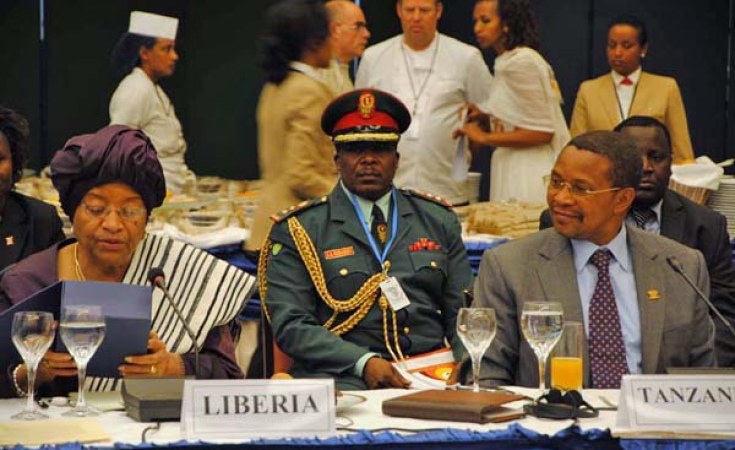A coalition of African leaders on Monday launched a "scorecard for accountability and action" to track their progress in the fight against malaria, following on successes in battling the disease that claims hundreds of thousands of lives in Africa each year.
The 40-member African Leaders Malaria Alliance (Alma), which was launched two years ago, aims to bring malaria deaths to near zero across the continent by 2015 in line with United Nations Millennium Development Goals to improve health, reduce poverty and boost development in Africa.
"The evidence is becoming obvious. Malaria infection in Africa is receding," Tanzania's President Jakaya Kikwete told a press conference on Monday in New York for the launch of the scorecard.
He said in recent years 11 malaria-endemic countries in Africa have been able to slash malaria cases by 50 percent.
"The Alma scorecard is a good idea, and in our view it is a powerful monitoring tool because it involves the heads of state at the highest level of leadership and brings a collective focus of governments and partners in the fight against malaria," said Dr. Luis Gomes Sambo, regional director for Africa of the World Health Organisation (WHO).
Targeted Measures
Kikwete partially attributed the successes to specific measures: distribution of bed nets, residual spraying of insecticide, rapid diagnostic tests and administration of combination drug therapy.
Since 2008, he said, 229 million long-lasting insect-treated bed nets have been distributed in Africa, which he said was sufficient to achieve 84 percent coverage of those at risk of contracting the disease. Homes covered by indoor, residual spraying of insecticide had increased from 20 million to 75 million over the past five years.
The Alma scorecard will be updated quarterly with data on key health metrics across several malaria-endemic countries to help African leaders hold themselves and each other accountable for progress in anti-malaria goals. It aims to spur decisive action among leaders and provide greater transparency in the efforts to fight malaria.
The scorecard will also track indicators for maternal, newborn and child health.
Still a Killer
Kikwete noted that malaria was Africa's leading killer, affecting 170 million people on the continent each year. A child dies from malaria every 45 seconds, according to the WHO.
Malaria also hurts development, with two percent of Africa's GDP lost each year because of the illness. Production of goods and services is disrupted and poor families end up spending 25 percent of their incomes for treatment, he said.
Despite successes in combating malaria, Kikwete noted that challenges remain. He said gains must be sustained, access to interventions scaled up and new sources of revenue identified. Also member countries and donor partners need to improve their compliance with commitments to fight malaria.
"We have guided our countries in making great strides in the fight against malaria and we remain committed to do whatever it takes to overcome the remaining challenges and win this war," Kikwete said.
"Losing is not an option."
Local Interventions
Among the most successful countries in the malaria battle is Rwanda.
Malaria deaths dropped by 60 percent between 2005 and 2010 through a rapid scale-up of malaria interventions, according to Rwanda's health ministry.
Rwandan Health Minister Agnes Binagwaho attributed this to an integrated approach with community health workers.
"But more than that we have focused our activities where the people were dying and where people were sick at the community level," she told Monday's press conference. "We have a national policy for community health. Our objective is to keep 80 percent of any burden at the community level where people are living."
She urged other African leaders to come up with homegrown solutions for country ownership in their malaria fight. "You cannot replicate," she said.
She urged a greater regional approach to fighting malaria, because mosquitoes cross borders, and the creation of public-private partnerships so that bed nets could be produced within Rwanda and on the continent as a whole.


